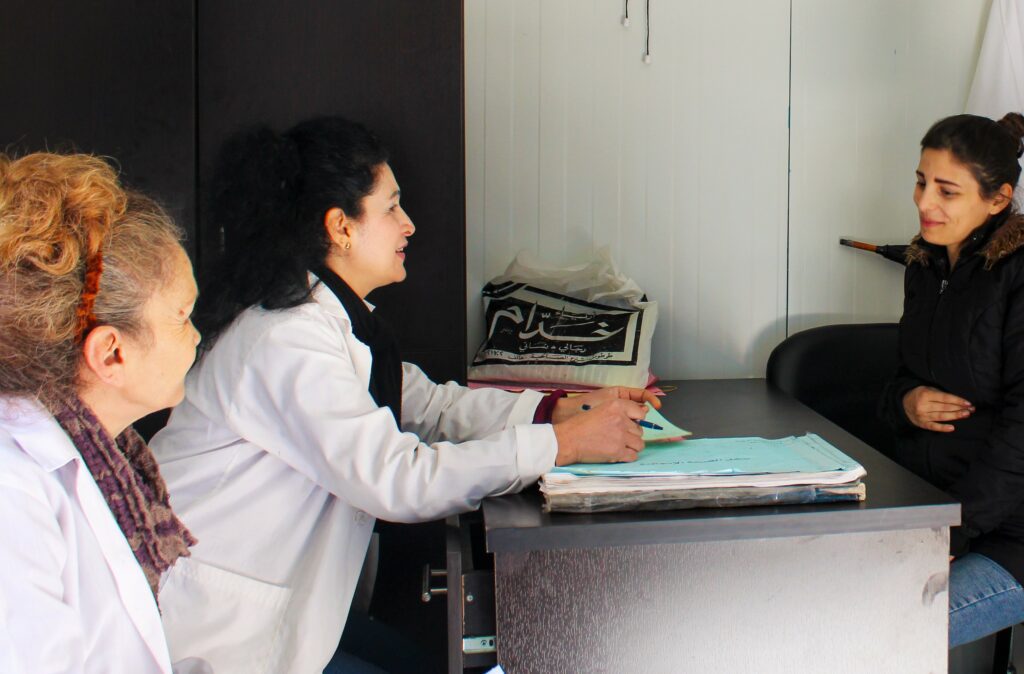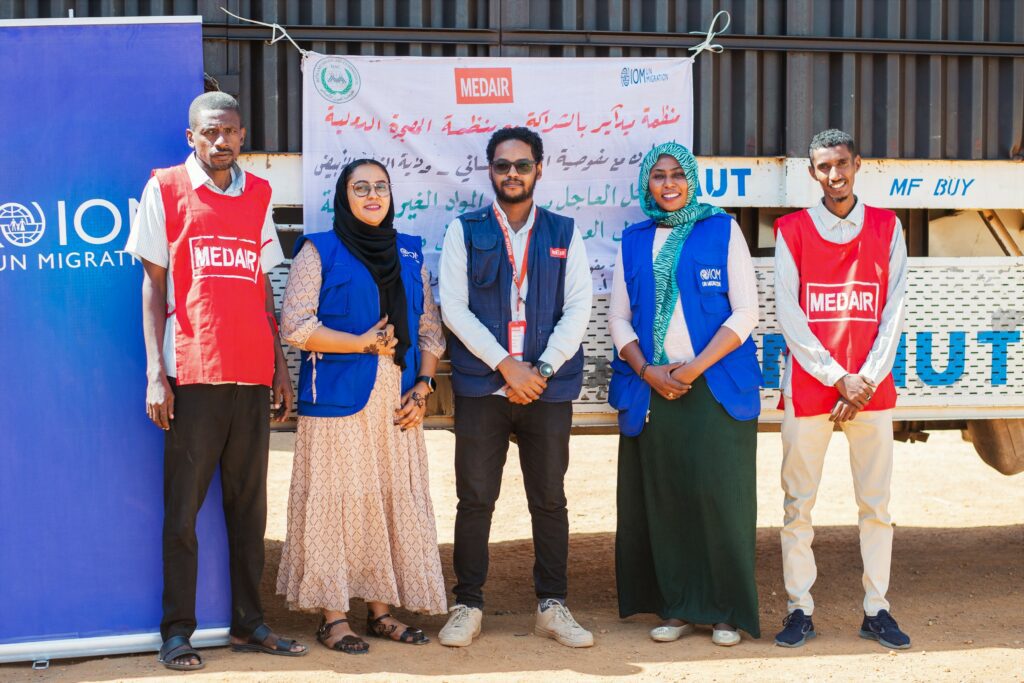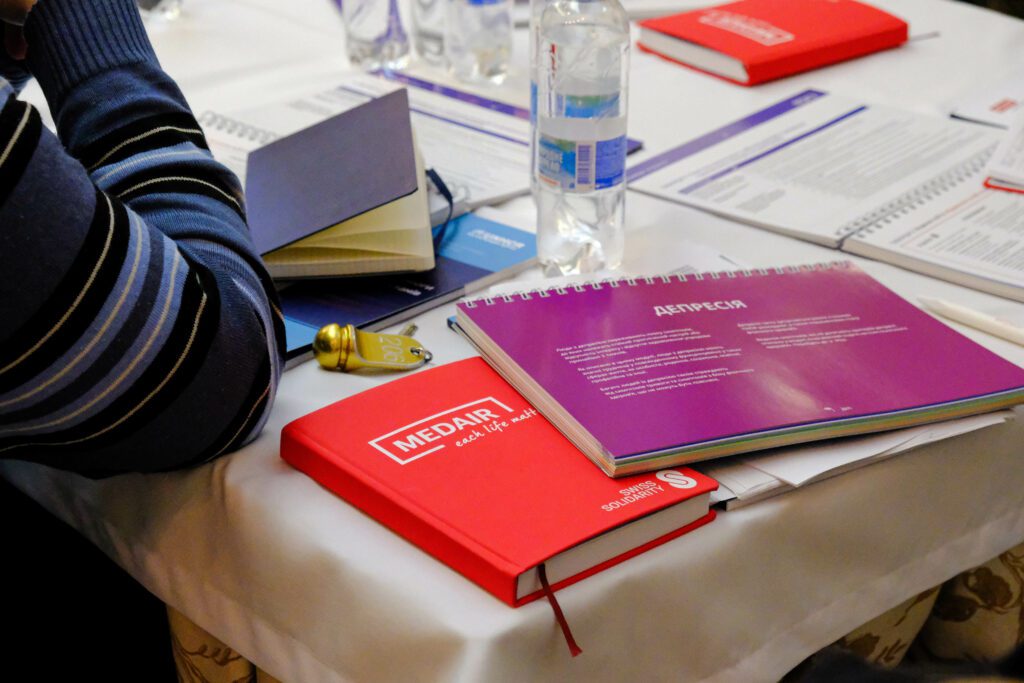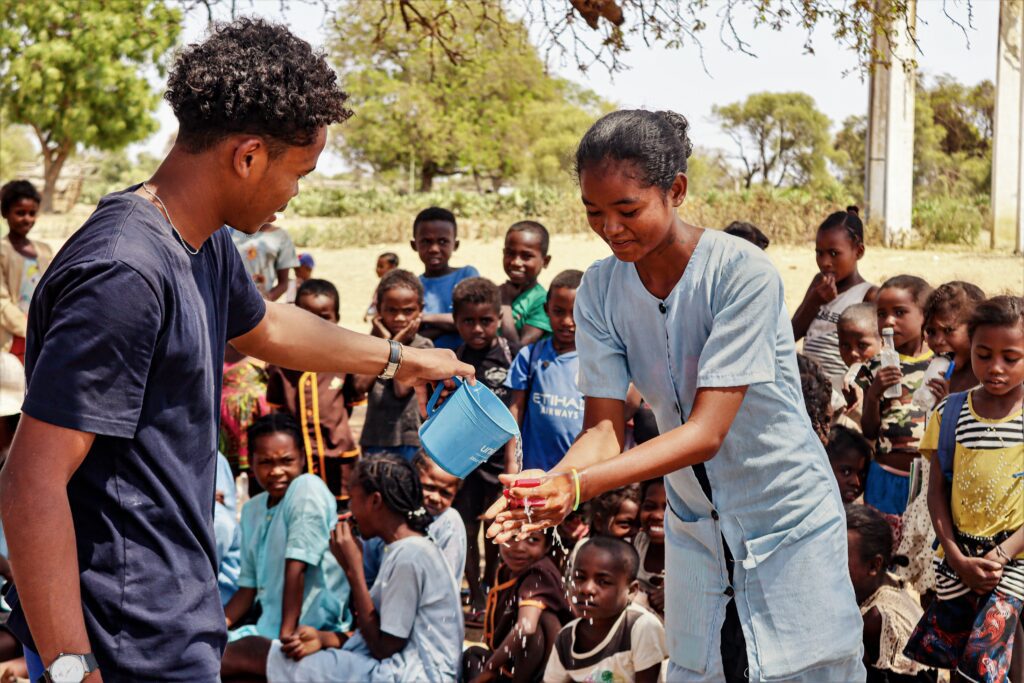For expectant Congolese mothers, living in a maternal home in the last few days of their pregnancy could be a matter of life and death, both for her and the child.
Jeanne left behind her two-year-old child with his husband at home to temporarily live in a maternal waiting home, a dormitory of beds for expectant mothers to stay in the last few weeks of their pregnancy to avoid complications when giving birth.
Jeanne is expecting to give birth to her second child in two weeks when she arrived in the hospital. “I came to the hospital just for my prenatal check-up, but the health worker advised me to stay. They said that I am due to give birth soon,” expectant mother Jeanne, 22, says.
She added: “I decided to stay because I don’t want to risk it. I nearly died during my first pregnancy. I was supposed to give birth at home, but I ended up bleeding a lot.
“We were not able to immediately arrive at the hospital because we were trapped in a village where violence was happening.”
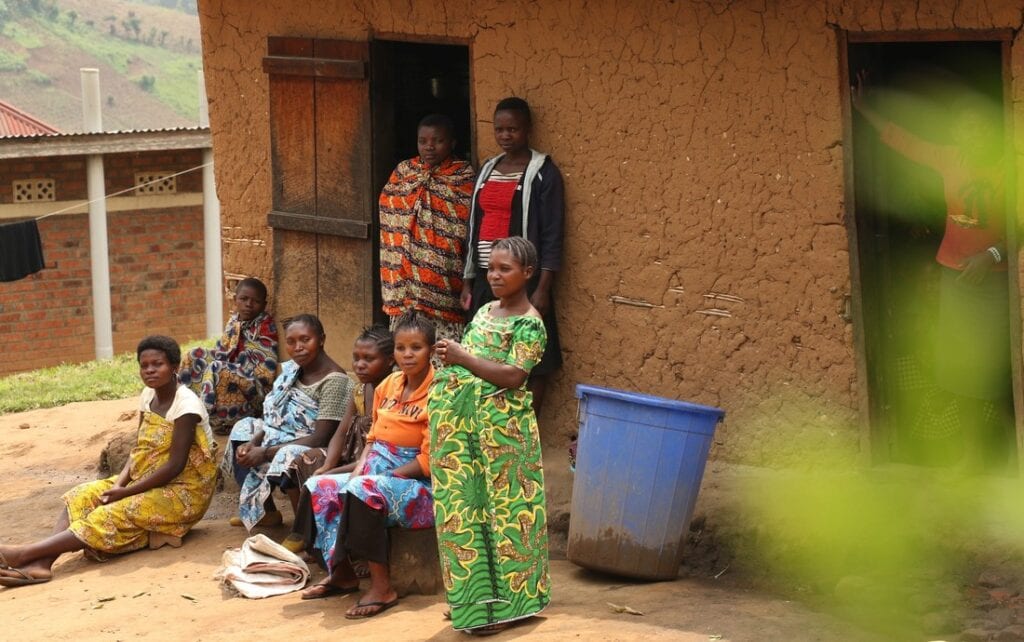 Pregnant mothers sit on the ground outside a mud-walled kitchen.
Pregnant mothers sit on the ground outside a mud-walled kitchen.
Since Jeanne stayed, waiting to give birth, her mother who accompanied her during her check-up went back to their village alone to inform his husband and child.
She added: “It’s hard to be away from home especially when you have a small child to take care, but I don’t want to give birth at home anymore. It’s dangerous.”
Jeanne admits that living in a maternal waiting home can be lonely sometimes, but fellow expectant mothers compensate it through chatting, walking or cooking together.
“My family cannot pay me a visit often. Our house is almost a day walk to the hospital and walking for a day would mean, not having money to feed the family for a day.
“Staying here could be lonely sometimes, but I feel safe for my child, knowing that there are doctors and health workers who watch over us here,” Jeanne says.
The maternal waiting home where Jeanne, along with over 20 expectant mothers, temporarily lives is a mud-walled hut. It has narrow beds, wrapped with a mosquito net, crammed into two rooms. It is located inside the hospital for doctors and health workers to monitor the pregnant mother and the child.
Sometimes, expectant mothers stay in a maternal home with a companion, but Jeanne doesn’t have as her husband and mother have to stay home to find a living.
When the expectant mother has a companion, she or he has to find a place to stay or sleep under the tree as the space in the maternal home is limited.
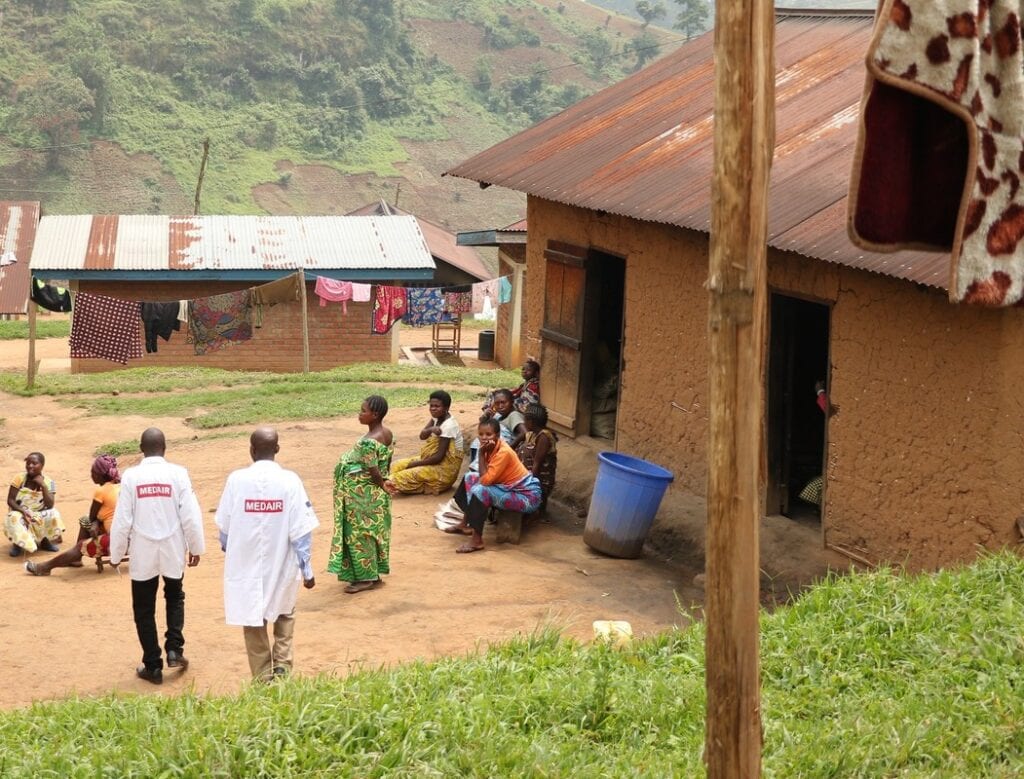 Doctors check on the expectant mothers routinely. They keep an eye on the expectant mothers during pregnancy and in the lead up to giving birth and before going home.
Doctors check on the expectant mothers routinely. They keep an eye on the expectant mothers during pregnancy and in the lead up to giving birth and before going home.
Jeanne added: “My family has visited me twice, in my two weeks of my stay here. They brought me clothes and food that would last for a few days or a week. I hope that when they get back, we will be going home together, along with my healthy new-born.”
In remote areas of DR Congo, patients like Jeanne have to embark a long journey to reach to a hospital, either by walking many miles on foot or taking motorbike or motorcycle, crossing a river or passing through a mountain or desert. Aside from the physical inaccessibility, financial constraints and insecurity are common barriers that prevent people from conflict-affected communities from accessing health care.
In the Democratic Republic of Congo, Medair supports hospitals and health care centres by training front-line workers and providing medicines and equipment. As well as providing access to primary health care in the community where Jeanne’s hospital is located, Medair helps improve food security by teaching mothers how to improve their farming techniques. Initiatives like training health care staff and teaching sustainable farming methods provides a lasting impact amongst vulnerable people in Congo.
This project was funded by the Swiss Agency for Development and Cooperation, the European Union Civil Protection and Humanitarian Aid Operations (ECHO) and private donors.
This content was produced with resources gathered by Medair field and headquarters staff. The views expressed herein are those solely of Medair and should not be taken, in any way, to reflect the official opinion of any other organisation.


